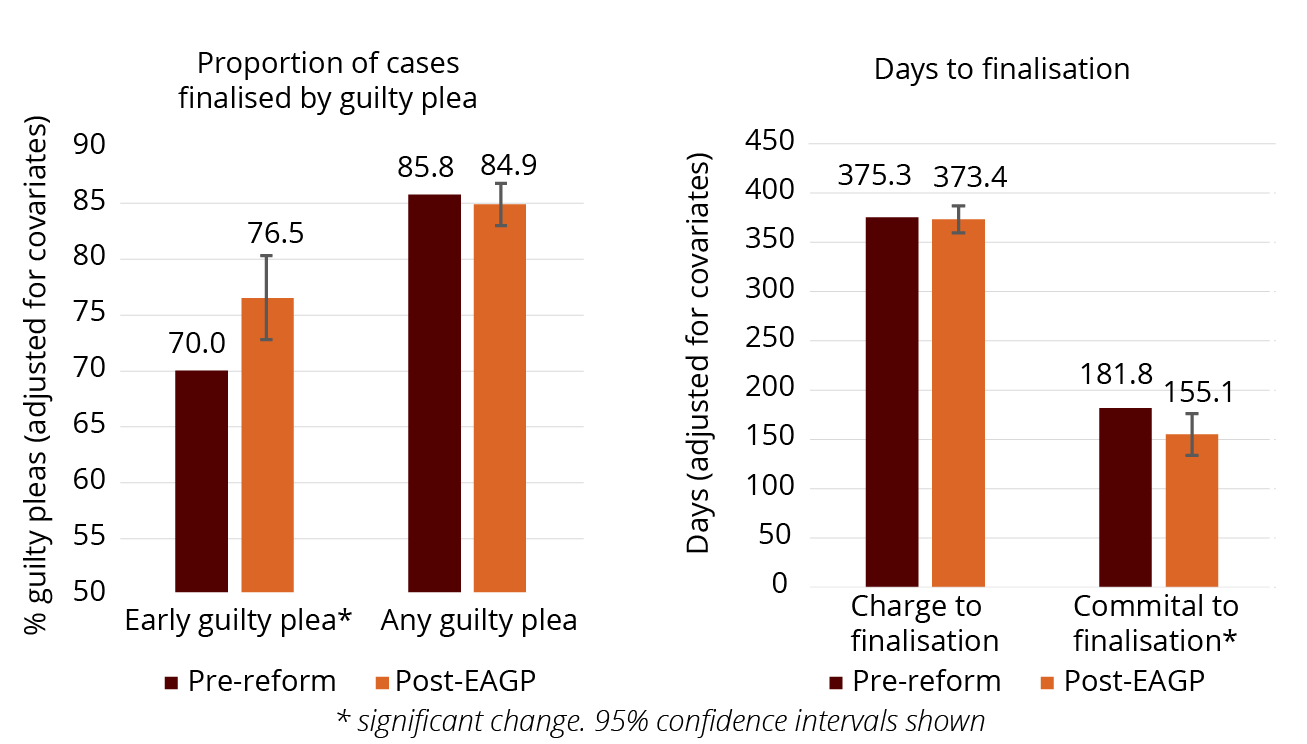Summary
Background
The Early Appropriate Guilty Plea (EAGP) reforms were introduced in April 2018 to incentivise the entry of guilty pleas early in the court process. The reforms included early certification of charges, increased and earlier negotiation between the defence and prosecution, continuity of legal representation, and statutory sentencing discounts for early guilty pleas. The reforms substantially changed the court processes for defendants charged with the most serious (i.e., indictable) offences.
We examine whether the EAGP reforms achieved its main aims. The reforms were intended to increase the proportion of cases with an early guilty plea as well as a guilty plea at any point in the court process. The increased efficiency associated with avoiding a committal to trial was also expected to contribute to:
- A reduction in the time to case finalisation;
- An increase in the weekly number of case finalisations in the District Court (DC).
Our study examines these outcomes by comparing cases initiated after the EAGP reforms (i.e., with a charge date on or after the 30th April 2018 and finalisation date before the 16th March 2020) to cases initiated before the reforms (i.e., with a charge date after 13th June 2016 and a finalisation date before 30th April 2018).
Key findings
The proportion of cases committed to the DC which were finalised by a guilty plea in the Local Court (i.e., early guilty plea) increased by 6.5 p.p. after the EAGP reforms.
The average number of days from DC committal to case finalisation decreased by around 27 days. However, this was offset by an increase in time from charge to committal and thus, the average number of days between earliest charge date and finalisation did not change after the reforms. There was also no change in the proportion of total guilty pleas.
Additionally, we find an increase in the number of weekly finalisations in the DC after the reforms commenced of up to 12.3 cases a week. This increase is only apparent once adjusting for the demographic and offence composition of cases in the DC.
Conclusion
The EAGP reforms have succeeded in increasing early guilty pleas and weekly finalisations in the DC. Further research, using a longer follow-up, will be necessary to gauge its effect on matters proceeding to trial in the DC.
